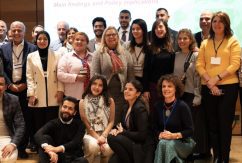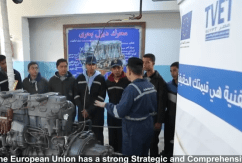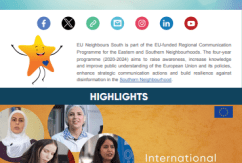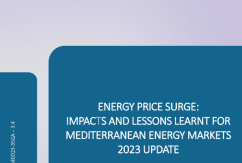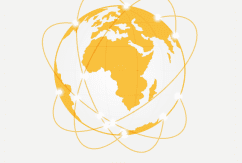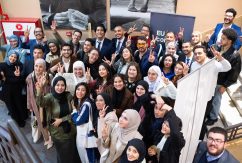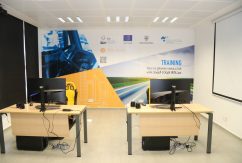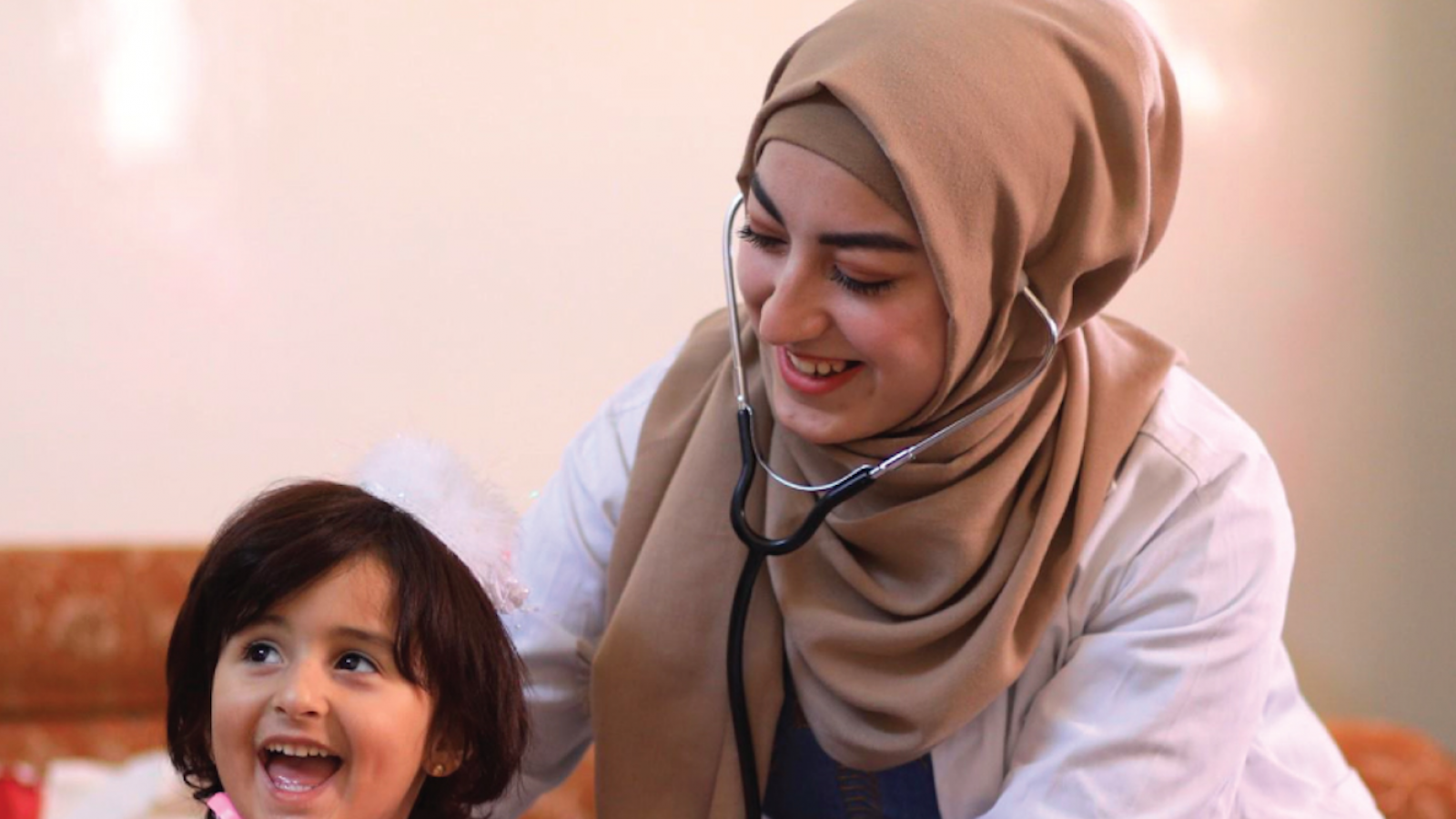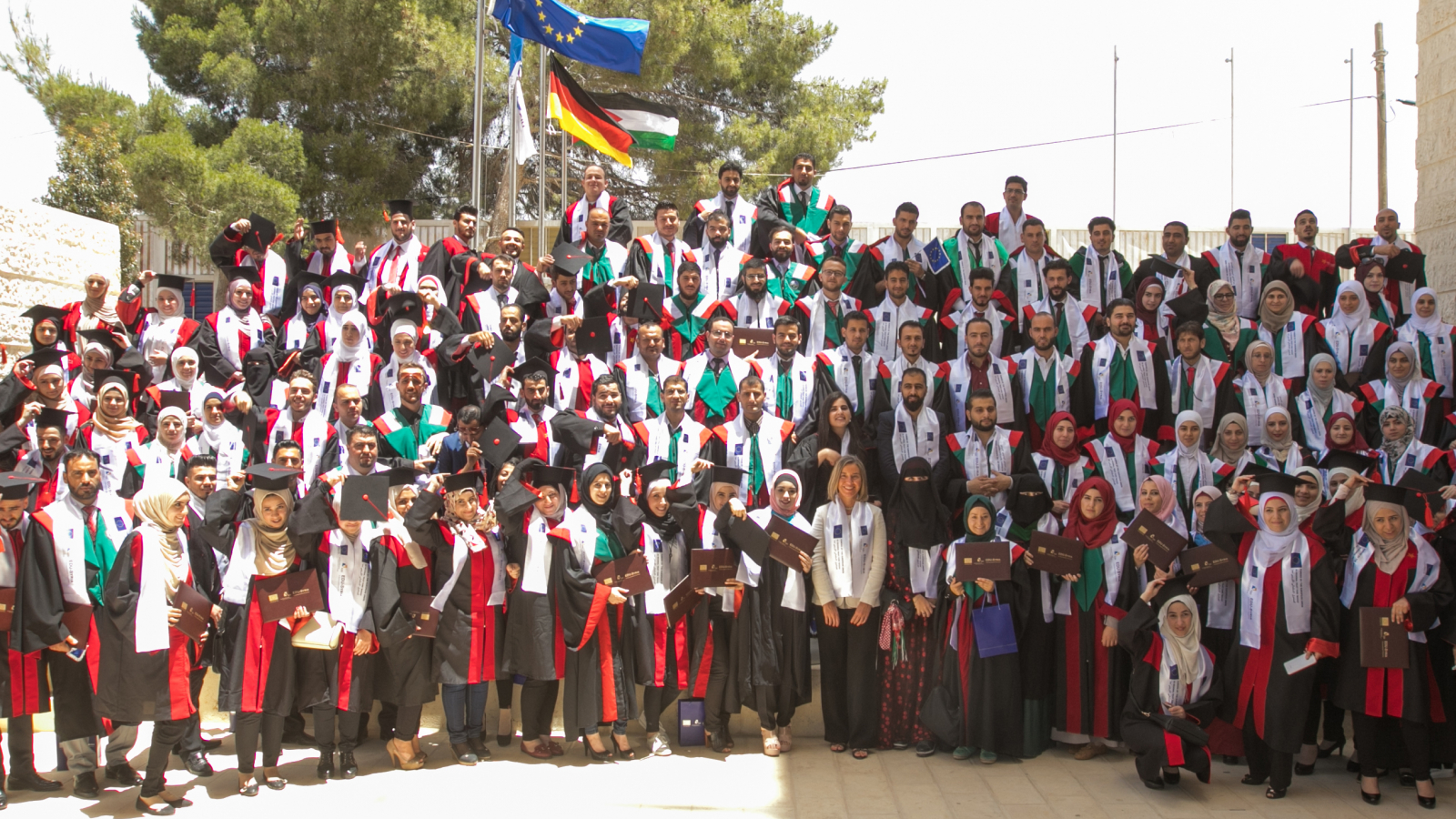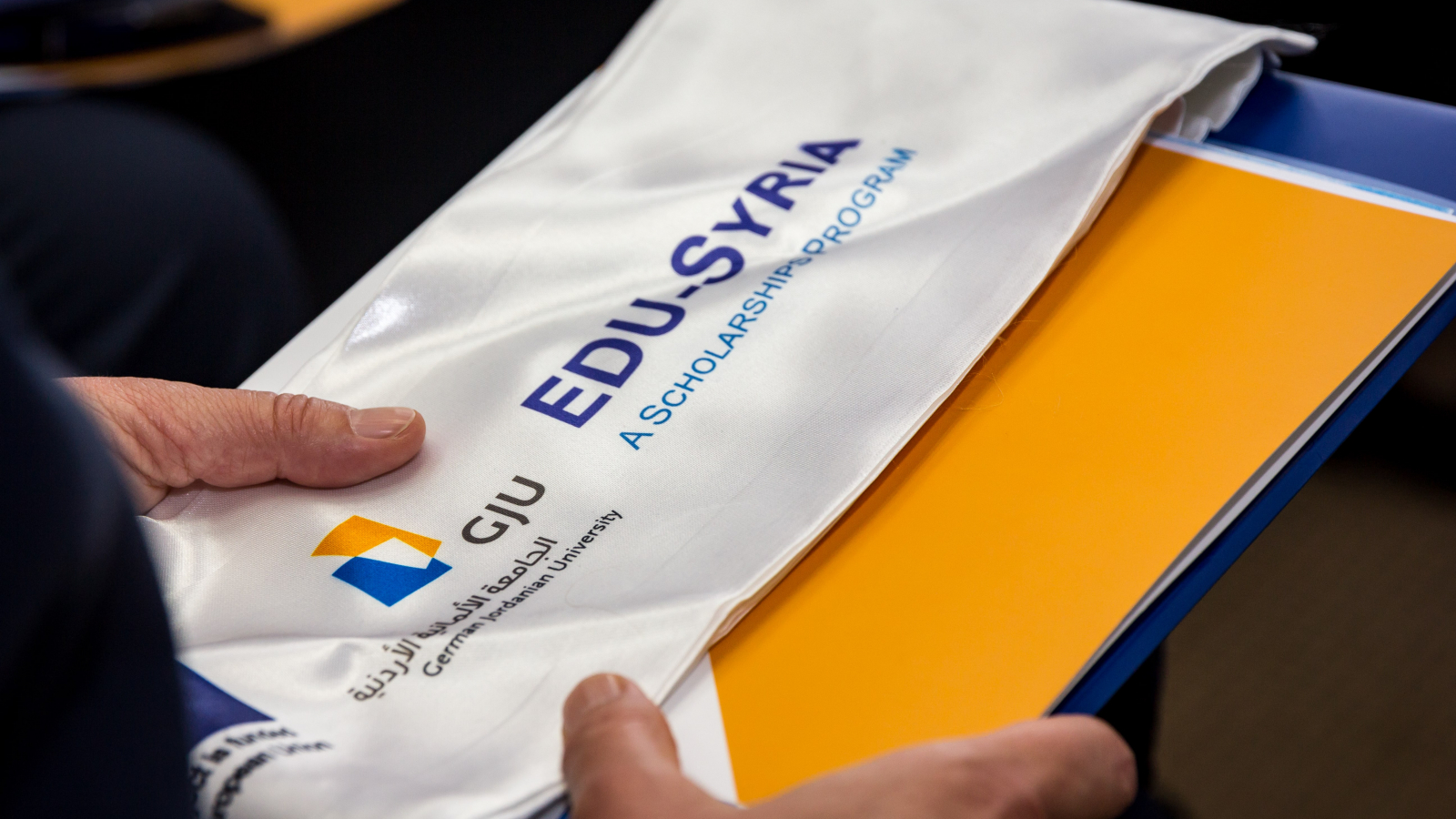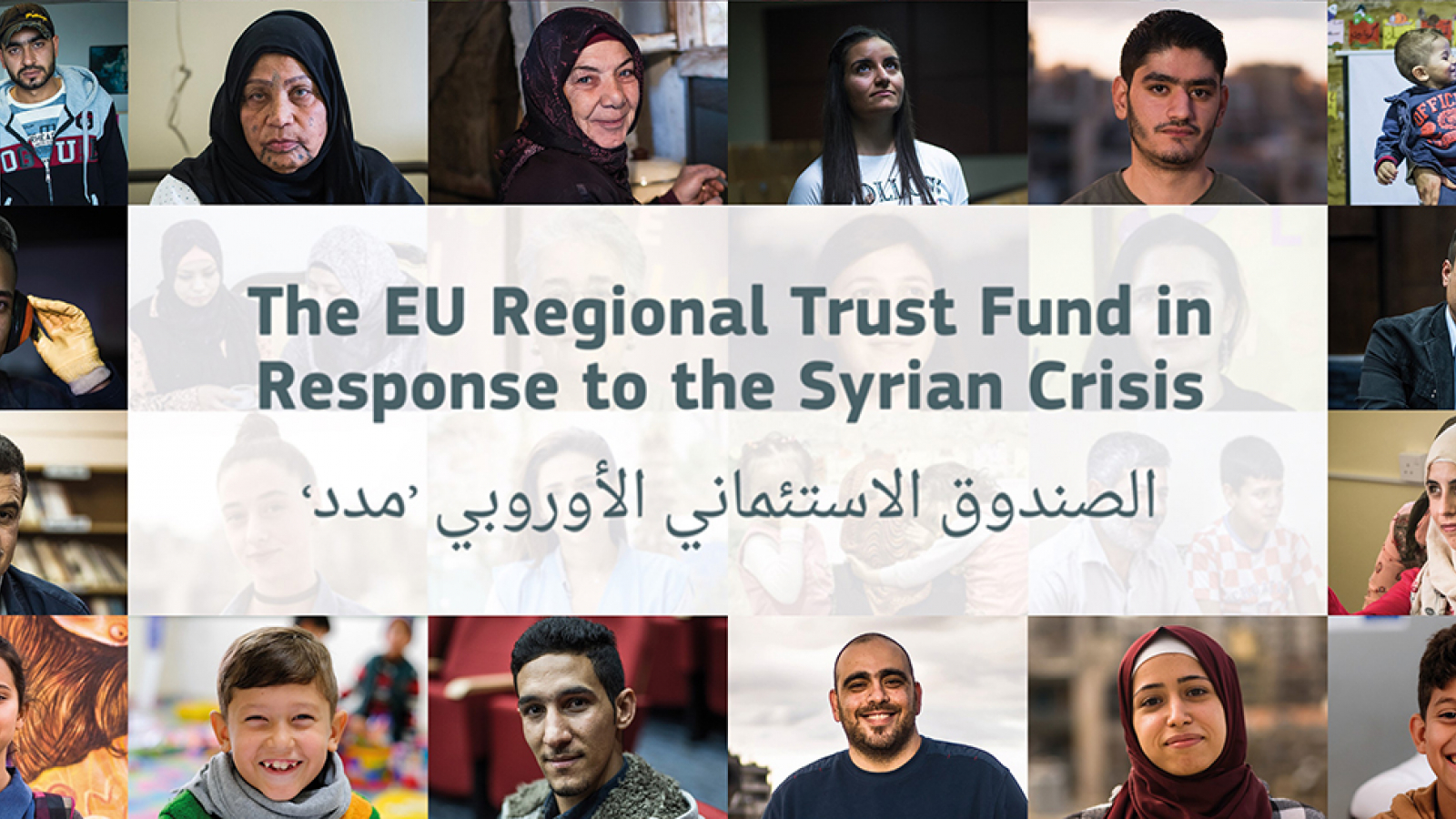Bringing healthcare to all: young Jordanian offers free medical aid to village during COVID-19
Ayaat Nouaisah, a young nursing student, has come up with an innovative idea to ease COVID-19-related challenges for her remote village and bring solace to her local community.
Located 70 kilometers north of Amman, Al-Mafraq Governorate has gained increased attention in the local news due to its status as the governorate hosting the largest number of Syrian refugees after Amman. Whilst humanitarian aid flooded into the camp, the rest of the governorate has remained deprived of the level of services the Jordanian capital enjoys. Healthcare systems and infrastructures remain underdeveloped and difficult to reach for many people across the governorate.
The COVID-19 crisis therefore came as a brutal blow for most of the local residents, such as Ayaat, a Jordanian student living in a small village with her family. The young EDU-SYRIA II scholarship holder has been pursuing a nursing bachelor’s degree at Zarqa University for the past two years, eager to make a change in her local community.“I live in a very small town in Al-Mafraq, far from Amman. When COVID-19 happened, I instantly wondered about how I could support my local neighbourhood, which greatly lacks health providers,” she remembers.
After some thinking and digging around, Ayaat decided to use the easiest channel she knew of: social media. She launched her own healthcare initiative by posting on Facebook, Instagram and other platforms, stating that she was offering basic medical services free-of-charge for anyone in need. “I have learned a number of skills during my degree, such as taking vital signs like blood pressure and pulse, checking random blood sugar, etc,” Ayaat explains, adding that she also had access to the sterilised tools and equipment needed for conducting such check-ups. Although basic, these services were very much needed by the local community, which instantly displayed a tremendous demand. “So many people were lining at my door!” Ayaat remembers.
Requests ranged from medical advice on medications, check-ups, preventative healthcare, among others. “People were confused about what they should do for their vaccinations and to stay safe. I volunteered and helped my village and people in need. I really love this,” the young student rejoices. Ayaat’s services also allowed people living in small remote villages to receive the help they needed without having to travel all the way to the bigger town’s health workers.
Like several cities across Jordan, some parts of Mafraq became isolated during lockdown, in order to avoid the spread of COVID-19 detected cases. In such times, Ayaat’s help became vital, as she provided people with their needed medical injections on time. The young woman was able to acquire her medical skills thanks to the EDU Syria II scholarship funded by the European Union under the EU Regional Trust Fund in Response to the Syrian Crisis, the EU Madad Fund.
EDU-SYRIA
EDU-SYRIA is a host of projects that chronologically extended over the last five years and still going, 2015 and further. The projects are EU funded via MADAD in response to the Syrian crises. Hence, the primary beneficiaries are Syrian refugee and underprivileged Jordanian youths. The ultimate objective of the projects is to improve the livelihood of those beneficiaries by providing them with higher education opportunities through a cluster of scholarships that are granted every cohort of high school graduate since 2015.
EDU-SYRIA I was launched in late 2015 where a fund of 4 million Euros supported a total of 390 higher education accredited degree, master’s, bachelor’s, and vocational programs. Another MADAD grant was bequeathed, 11 million Euros, inaugurating EDU-SYRIA II, the second wave of the project, October 2016. The project was the largest in Jordan in terms of the number of the higher education degree scholarships that was awarded, specifically, 1000. The EU Regional Trust Fund in Response to the Syrian Crisis presented a smaller endowment of 2.6 million Euros in January 2019 allowing for additional 200 higher education degree scholarships. EDU-SYRIA III was launched in January 2020 with a fund of 15 million Euros. The components/actions of the last wave were more diversified in nature and design where some aiming to pick up the young adults who dropped out or leaked out of school. The direct total of beneficiaries is 2245 Syrian refugees and underprivileged Jordanians.
EU Regional Trust Fund in Response to the Syrian Crisis
Since its establishment in December 2014, a significant share of the EU’s non-humanitarian aid for Syria’s neighbouring countries is provided through the EU Regional Trust Fund in Response to the Syrian Crisis, the EU ‘Madad’ Fund. The Trust Fund brings a more coherent and integrated EU aid response to the crisis and primarily addresses economic, educational, protection, social, and health needs of refugees from Syria in neighbouring countries such as Jordan, Lebanon, Turkey and Iraq, and supports overstretched local communities and their administrations.
Read more
EU Delegation to Jordan website
EU Regional Trust Fund in Response to the Syrian Crisis Syria website
